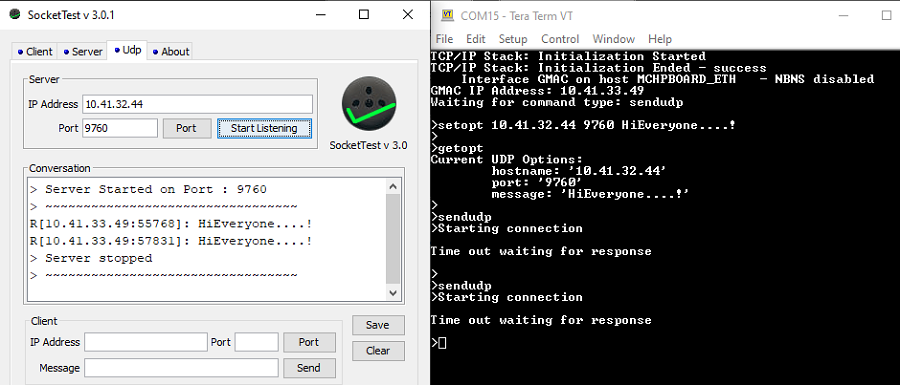1.4 TCP/IP UDP Client
This application demonstrates usage of MPLAB Harmony UDP API to implement a UDP client that establishes connection to a UDP server, on port 9760.
Description
The TCP/IP UDP Client application is based on MPLAB® Harmony 3 TCP/IP Stack.
The Harmony TCP/IP stack is a collection of different network protocols.
The source files of Harmony 3 TCP/IP stack is available here.
The demo is created with MPLAB X IDE and MCC plugin.
MCC Project Graph - TCP/IP UDP Client
The following Project Graph shows the Harmony components included in the TCP/IP UDP Client demo application.
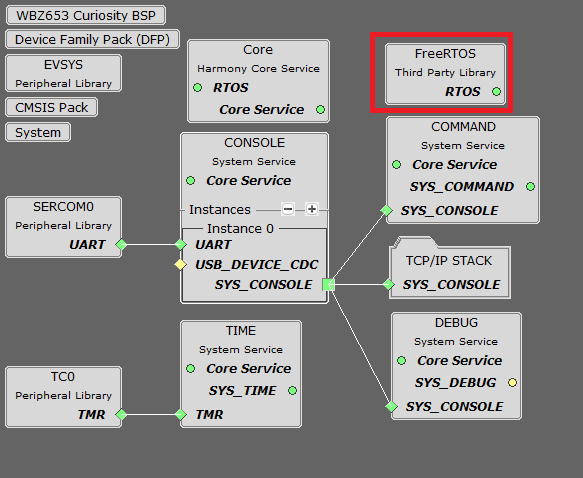
FreeRTOS component is required for RTOS application. For bare-metal (non-RTOS) FreeRTOS component should not be selected.
TCP/IP Configuration - TCP/IP UDP Client
The TCP/IP modules enabled for the demo is shown in the TCP/IP Configuration Overview
More details of TCP/IP Configuration plugin is available here
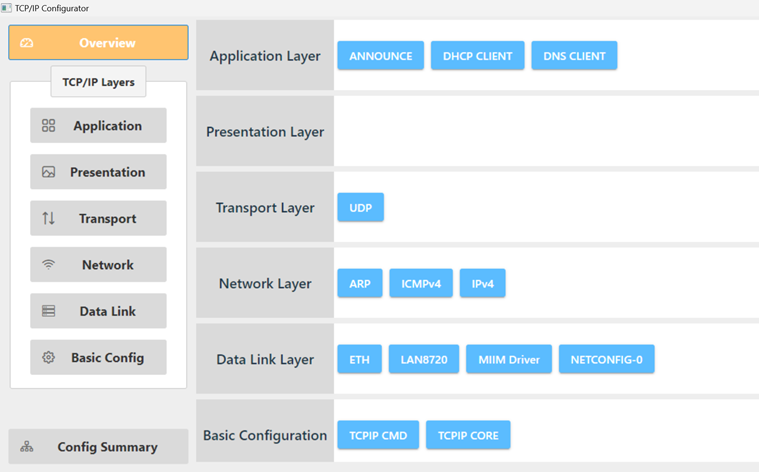
The Application Layer modules enabled in the demo are as follows:
- Application Layer Modules
- ANNOUNCE to discover the Microchip devices within a local network.
- DHCP Client to discover the IPv4 address from the nearest DHCP Server.
- DNS Client provides DNS resolution capabilities to the stack.
Downloading and Building the application
To clone or download this application from Github, go to the main page of this repository and then click Clone button to clone this repository or download as zip file.
This content can also be downloaded using content manager by following these instructions.
Path of the application within the repository is apps\tcpip_udp_client\ .
To build the application, refer to the following list of demo configurations and open the project using MPLAB X IDE.
| Project Name | Target Device | Development Board | Description |
|---|---|---|---|
| wbz653_curiosity.X | WBZ653 | WBZ653 Curiosity Board | TCP/IP UDP Client Application - Bare Metal |
| wbz653_curiosity_freertos.X | WBZ653 | WBZ653 Curiosity Board | TCP/IP UDP Client Application - FreeRTOS |
Hardware Setup - WBZ653 Curiosity
The target board for running the application is WBZ653 Curiosity.
This section provides essential hardware configuration of this target board to run TCP/IP applications.
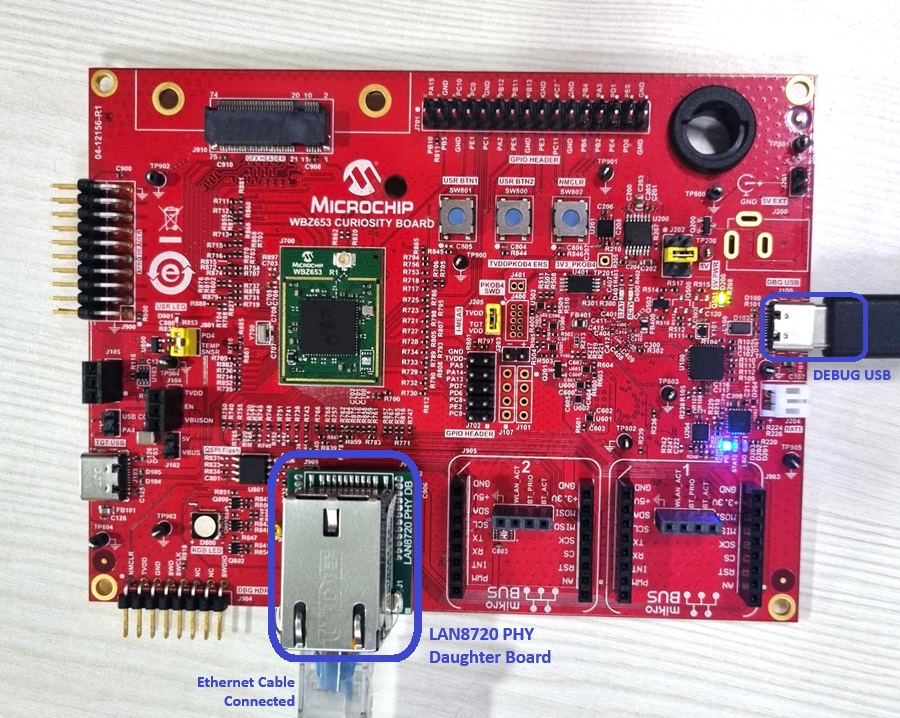
Board Setup
- Default jumper setting of the board is shown above.
- Connect the USB Type-C cable between DEBUG USB port on the board and host PC.
- Establish a connection between the router/switch with the WBZ653 Curiosity board through the RJ45 connector, using the Ethernet cable.
Running the Application
- Open a terminal application on the host computer (like Hyper-terminal or Tera Term).
- Configure the terminal application for serial port “USB Serial Device”.
- Set baud rate as 115200 in the terminal application.
- Build and download the application project on the target board.
- Verify the TCP/IP Stack initialization console messages.
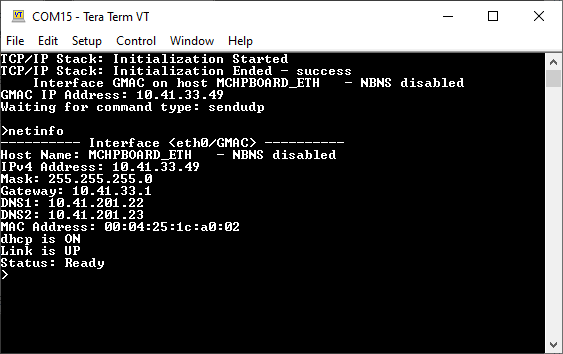
If DHCP client is enabled in the demonstration, wait for the DHCP server to assign an IP address for the development board.
This will be printed on the console. Otherwise, the default static IP address will be assigned to the board.
By entering the command netinfo, the response is obtained as shown above.
UDP Client Test
For UDP Client test, a UDP Server application is required to run on the host computer.
In this demonstration, we use SocketTest utility configured as UDP server.
- Application commands for this demo are : setopt, getopt and sendudp.
- setopt : Set the UDP packet options like destination IP address, destination port and message to send
- getopt : Readback the current settings
- sendudp : Send the UDP packet
See the following screenshot of Console with UDP Client Commands for the test and UDP Server (SocketTest) receiving message from UDP Client.
